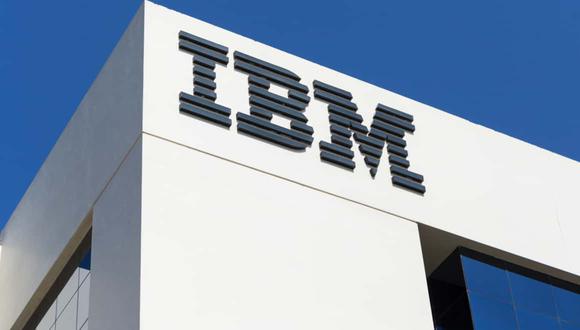Neste and IBM’s partnership dates back to 2015, a time when the Finnish oil company made the decision to drop the “oil” from its name and devote itself to adopt more sustainability measures to meet its ESG goals and assist in the fight against climate change.
ERP Today spoke with Sarah Thuo, partner and Americas practice leader: sustainability business transformation services at IBM, to explore Neste and IBM’s relationship further and to discuss the next steps for Neste’s sustainability mission and what more the company can do in an ever-changing global climate crisis.
Melissa Evatt (ME): Why did Neste choose IBM to implement SAP S/4HANA? What makes IBM stand out from other partners?
Sarah Thuo (ST): We have worked with Neste since 2015, when our teams really cultivated a collaborative relationship and built a great deal of trust. When Neste’s need for a sustainable change became clear 2018, the company saw an important role for us to help grow the renewable side of their business. We wanted to truly understand and share their vision, combining our resources and industry experience with Neste’s commitment to evolving as a company.
Leveraging the depth of IBM’s SAP deployment experience, Neste successfully rolled out an SAP S/4HANA solution across most of its operations, including renewables supply chains. As part of the cloud deployment, a team from Nordcloud, an IBM Company, played a key role in the integration, while a team from IBM Consulting Cloud Migration Services assisted in the migration of SAP from on-premises infrastructure to the cloud platform.
ME: With renewables being at the forefront of Neste’s mission, are there any other areas of the business that Neste is considering targeting to improve its ESG impact?
ST: While we cannot speak as Neste representatives on their ESG strategy, we can comment on industry trends that we’re currently seeing and hearing about on other target areas of ESG impact.
As the world’s leading producer of sustainable aviation fuel and renewable diesel and a leader in developing chemical recycling, Neste aims to help customers reduce their greenhouse gas emissions by at least 20 million tons annually by 2030. As part of its commitment to reaching carbon-neutral production by 2035, Neste is also planning to reduce the carbon emission intensity of its sold products by 50 percent by 2040.
Today, many oil and gas companies are looking ahead and are also identifying ways to transform their internal operations and improve their ESG impact. This includes helping their employees in their internal supply chain function better understand the impact of their actions on company carbon emissions and helping them understand how to reduce their carbon emissions.
At IBM, we work with our clients to develop their sustainability strategy and equip them with the tools and assets needed to help employees quantify their carbon impact and to help them understand how to reduce their overall GHG emissions footprint.
ME: With the climate crisis ever-changing, has the company’s sustainability goals changed in response to the changing environment?
ST: Again, we cannot comment on Neste’s business or sustainability strategy and response to the climate crisis latest news outside of what the company’s publicly stated goals and accomplishments. However, we can state that many companies in the fuels industry are continuously monitoring climate change trends and stakeholder demands to address climate issues more quickly.
Neste’s pivot toward sustainable practices in 2018 set the company on a mission to refine waste, residues and innovative raw materials into renewable fuels and sustainable feedstock for plastics and other materials. Renewable fuels are at the heart of this effort and are what truly set Neste apart. These renewable fuels are created from renewable feedstocks and a broad range of waste residues like used restaurant cooking oil and animal fat. By adding significantly less carbon compared to traditionally sourced fuels, renewable fuels are increasingly attractive to fleet-owning customers like airlines and transport companies as a way to efficiently reduce their carbon footprint.
ME: Many other oil companies are receiving negative press and pressure from environmental activists at the moment, making the successes of this eco project and of renewable sources ever more relevant.
What are some of the ways IBM and SAP have helped Neste address similar challenges by improving its supply chains?
ST: The end-to-end visibility provided by integrating SAP has helped improve the company’s agility in terms of finding and incorporating new feedstock sources into its refining process. And that, in turn, has helped Neste increase its renewables production capacity, which is expected to reach 6.8 million tons by the end of 2026. At present, more than 90 percent of Neste’s total renewable raw material inputs come from waste and residue products and all its renewables refineries can run on 100 percent waste and residue raw materials.
ME: In terms of software and supply chain strategy, what needs to happen next for Neste to keep abreast of ongoing changes in environmental strategy and regulation?
ST: The accelerating need for sustainable aviation fuels worldwide is going to challenge the company to produce the required capacities and to be nimble with growth. We are excited about the company’s global growth and look forward to partnering with them in creating supply chain efficiencies both in their internal operations and in their upstream and downstream supply chain. The new ERP platform that Neste has transitioned to enables supply chain process efficiency improvements and makes its data more transparent, by design. A key benefit of this platform is the ability to quickly identify bottlenecks in the supply chain and production and then spot and resolve these inefficiencies within the process.
In addition to expanding the existing SAP landscape, IBM Consulting is continuing to provide Neste with the process design support it needs to get the most value from its ERP investments. Throughout the transformation project, Neste has also been working with a team from IBM Organizational Change Management Services, which has provided extensive support, starting from defining the harmonized processes across Neste to engaging and training the employees throughout the business transformation. In addition, we expect that Neste’s ERP system will provide a strong backbone to provide sustainable feedstock certification to meet the growing global regulatory need for transparency and disclosures.




